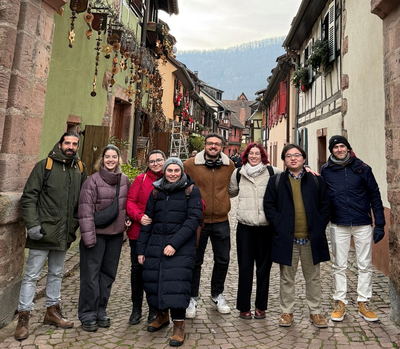Projects Offered
Edward Lemke Stamatis Papathanasiou Johannes Mayer_Ageing Johannes Mayer_Dynamics Daniel Sasca Natalia Soshnikova Tim SparwasserFunctional consequences of errors in mitosis
1 PhD project offered in the IPP summer call Molecular Mechanisms in Genome Stability & Gene Regulation
Scientific Background
Proper division of the genomic material is fundamental for cell homeostasis. Although cells have developed a plethora of mechanisms to ensure error-free division, mistakes during mitosis are common in normal physiology and a hallmark in disease. Such mistakes give birth to dysbalanced, aneuploid genomes. A prominent manifestation of mitotic errors is the generation of abnormal nuclear structures, such as micronuclei and chromosome bridges, common features of nuclear atypia in cancer with major physiological significance. Micronuclei are miniature, additional nuclei that form when a chromosome lags during mitosis and then recruits its own nuclear envelope. These structures accumulate massive DNA damage and can lead to severe rearrangements by mechanisms that are now starting to be understood. Yet, we do not fully understand the effects of dysbalanced genomes on cellular function and how these abnormalities contribute to disease initiation and progression.
We recently discovered a new phenomenon of heritable chromatin and transcriptional defects mediated by micronuclei. These alterations are inherited after the micronuclei reincorporate into the normal nuclear environment of daughter cells and are strongly associated with long-lived DNA damage. This work showed that chromosomal instability is inherently coupled to variation in gene expression, which may impact tumor evolution and provided significant insight into the elusive mechanisms leading to non-genetic, cell-to-cell epigenetic variability observed in pathophysiology.
PhD Project: Chromatin state dysregulation due to abnormal mitosis
Under what exact circumstances cell division errors can give birth to massive DNA lesions and other chromatin alterations, their inheritance in the progeny and their functional significance remain a mystery. The potential involvement of additional mitosis-mediated mechanisms – other than micronucleation – that initiate cascades of non-genetic alterations is also a black box.
We are excited to welcome a PhD candidate to attack these questions. We will combine cutting edge techniques, such as genome engineering and single-cell genomics together with advanced systems to track mis-segregated chromosomes by live-cell imaging over multiple generations. In parallel we will build upon our new experimental and computational framework that links phenotype to function at the single-cell level (named “Look-Seq2”). Strong motivation on computational genomics data and microscopy image analysis is important. The project aims to define mechanisms of DNA damage/repair dynamics of inherited lesions from abnormal chromosomes and understand functional cell responses to errors in mitosis.
If you are interested in this project, please select Papathanasiou as your group preference in the IPP application platform.
Publications relevant to this project
#Papathanasiou S, Mynhier NA, Liu S, Brunette G, Stokasimov E, Jacob E, Li L, Comenho C, van Steensel B, Buenrostro JD,#Zhang C-Z, #Pellman D. (2023) Heritable transcriptional defects from aberrations of nuclear architecture. Nature, 619:184-192. (#indicates joint correspondence) Link
*Leibowitz M, *Papathanasiou S, Doerfler P, Blaine L, Sun L, Yao Y, Zhang CZ, Weiss M, Pellman D. (2021) Chromothripsis as an on-target consequence of CRISPR-Cas9 genome editing. Article in Nature Genetics 53, 895-905 Link
Umbreit, N. T. et al. (2020) Mechanisms generating cancer genome complexity from a single cell division error.Science 368, doi:10.1126/science.aba0712 Link
Zhang, C. Z. et al. (2015) Chromothripsis from DNA damage in micronuclei.Nature 522, 179-184, doi:10.1038/nature14493 Link
